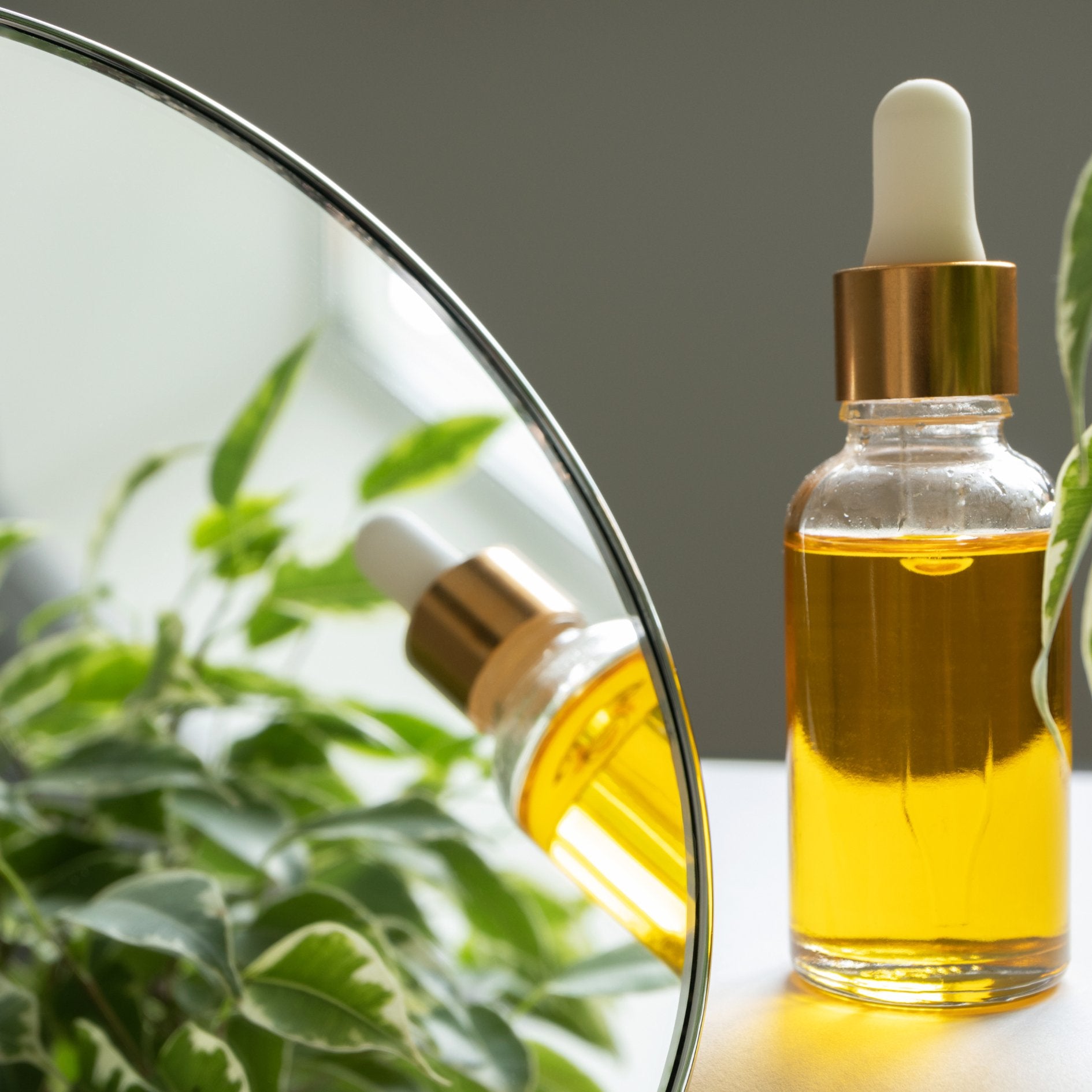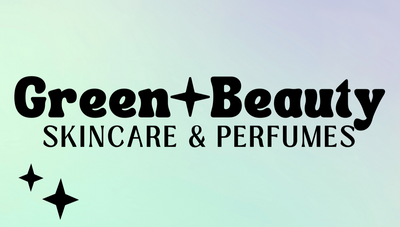

· By Madeleine Garza
Why Plant Oils are Great for Your Skin (Even if You Have Oily Skin!)
If you're new to skincare, you’ve probably heard the myth that putting oils on your face will clog your pores or make your skin oilier. This idea is everywhere—from TV commercials to common advice—but it’s a big misconception. The truth is, plant oils can be an amazing addition to any skincare routine, and they are suitable for all skin types, including oily and combination skin. Let’s dive into why plant oils are so good for your skin and how they work!
Why People Stay Away from Oils (And Why They Shouldn’t!)
Many people are hesitant to use oils because they think oils will clog their pores or make them break out. While this can be true for certain heavier, synthetic oils or mineral oils, plant-based oils are entirely different.
Plant oils are derived from natural sources like seeds, nuts, and fruits, and many of them are non-comedogenic, meaning they won’t clog your pores. These oils have been used for centuries to nourish and heal the skin, and they bring a wealth of benefits that other skincare ingredients simply can’t match.
Understanding the Variety of Plant Oils
One of the things I love most about plant oils is the diversity they offer. Each oil has its own unique properties—some are thicker, some are lighter, and they can range in color from deep green (like my favorite Tamanu oil) to golden yellow (like jojoba or sunflower oil). When creating my Green Beauty formulas, I carefully select oils based on several factors:
- Texture and Absorbability: Some oils are fast-absorbing and lightweight, making them great for oily or acne-prone skin, while others are thicker and more nourishing, ideal for dry or sensitive skin.
- Shelf Life: Natural oils can have different shelf lives, so I choose oils that remain stable and effective for a long time without needing preservatives.
- Skin Compatibility: I also take into account how well the oil works with different skin types. I specifically choose oils that have proven benefits, like balancing oil production, soothing irritation, or helping to repair the skin’s moisture barrier.
How Plant Oils Benefit All Skin Types
Now, here’s where things get interesting—plant oils can actually help balance your skin, even if you’re prone to excess oil or breakouts. Let’s break it down by skin type:
1. Oily Skin: Balance is Key
You might be thinking, "Why would I put oil on my oily skin?" But here’s the science behind it: Plant oils trick your skin into thinking it has produced enough oil for the day. Your skin naturally produces oil (or sebum) to keep itself hydrated and protected, but when it senses oil on the surface, it slows down its own production.
When you apply a plant-based oil to oily skin, it mimics the natural sebum your skin produces. This sends a signal to your skin that it doesn’t need to produce excess oil, helping to balance out shine and prevent breakouts. It’s like giving your skin a little cheat code to regulate itself!
2. Combination Skin: Nourishing Dry Areas, Balancing Oily Ones
If you have combination skin, where some areas are dry and others are oily, plant oils can help with both. They nourish the dry areas by providing essential fatty acids and moisture, while helping to balance the oil production in the T-zone (forehead, nose, and chin). The best part? The right oils absorb quickly without leaving a greasy residue, so you’re left with soft, balanced skin.
3. Dry and Sensitive Skin: Protecting and Repairing the Moisture Barrier
For those with dry or sensitive skin, plant oils are like a drink of water for your face. They’re packed with antioxidants, vitamins, and fatty acids that not only hydrate but also help repair the skin’s moisture barrier. This barrier is crucial for keeping your skin healthy and protected from environmental stressors. When your moisture barrier is functioning well, your skin is less prone to irritation, redness, and sensitivity.
How Plant Oils Help with Sebum Production
As I mentioned earlier, plant oils have a unique ability to regulate your skin’s natural oil production. Sebum, the natural oil your skin produces, plays an important role in protecting and moisturizing your skin. However, when your skin is producing too much sebum, it can lead to clogged pores and breakouts.
Here’s how plant oils help with sebum production:
-
Non-Comedogenic Oils: Oils like jojoba and sunflower oil closely mimic the natural oils found in your skin. This means that when you apply them topically, your skin thinks, "Okay, we’re good on oil!" and slows down its own production.
-
Sebum Regulation: Oils like Tamanu, which is one of my go-tos, help to balance sebum production by nourishing the skin without clogging pores. They can even reduce the severity of breakouts by creating a healthier balance on your skin’s surface.
-
Anti-Inflammatory Benefits: Many plant oils, such as Tamanu, also have anti-inflammatory properties that can reduce the redness and swelling often associated with breakouts, rosacea, or irritation. This means they don’t just work on the surface; they actually heal from within.
Oils Work for Everyone!
The best part about plant oils is that they can be tailored to suit any skin type. Whether you have dry skin, oily skin, or a combination of both, the right plant oils can provide moisture, balance, and healing. I’m always thoughtful about the oils I include in my Green Beauty formulations, ensuring they are lightweight, absorb quickly, and work well for a variety of skin types.
Here’s a quick rundown of why I choose plant oils in my skincare products:
- Non-Comedogenic: Most plant oils don’t clog pores, making them ideal even for acne-prone skin.
- Balancing: They help regulate your skin’s natural oil production, making them suitable for both oily and combination skin.
- Hydrating: They deeply nourish dry skin and help repair the skin’s moisture barrier.
- Healing: Many oils have natural anti-inflammatory and antioxidant properties that soothe irritation and protect against environmental damage.
Common Questions About Plant Oils
Will oils make me break out?
Not all oils are created equal! I carefully select non-comedogenic oils that are unlikely to clog your pores or cause breakouts. In fact, the right oils can help balance your skin’s natural oil production, leading to fewer breakouts over time.
Are oils good for sensitive skin?
Yes! Many plant oils, like chamomile and calendula oil, have soothing and anti-inflammatory properties that are perfect for calming sensitive or irritated skin. They help repair the moisture barrier, which is especially important for those prone to redness or sensitivity.
Can oils replace my moisturizer?
Plant oils can be used alone or in combination with your moisturizer. If you have oily or combination skin, you might find that a lightweight oil is enough on its own. If you have dry skin, layering an oil with your moisturizer can provide an extra boost of hydration.
Final Thoughts: Don’t Be Afraid of Oils!
Plant oils are incredible tools in skincare that can benefit everyone, no matter your skin type. They’re natural, non-comedogenic, and work with your skin to balance, heal, and protect. So, the next time you hear someone say, "Oils will make you break out!" you can confidently explain how oils, especially plant-based ones, can actually help your skin thrive.
At Green Beauty, I’ve carefully curated my formulas using the oils that I believe work best for your skin, from healing acne scars to nourishing and protecting your skin’s moisture barrier. I’m here to make skincare education fun, accessible, and empowering—so go ahead, add some oil to your routine and see how nature’s best-kept secret can transform your skin!
